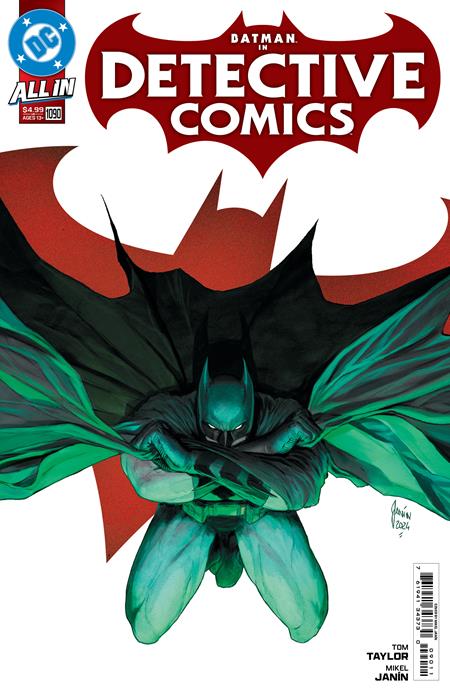
Apply Now


Effective Ways to Enhance Your Reading of Comics Journal in 2025
Comics have evolved into a complex and multifaceted medium that transcends mere entertainment. They serve as a powerful tool for storytelling, allowing for rich narratives, humor, and even insights into societal issues. With the rise of graphic novels, webcomics, and alternative comics, readers have more opportunities than ever to explore various styles and genres, including manga and superhero comics. As we approach 2025, enhancing your reading experience of comic journals can deepen your understanding of the comic book culture and its impact on society. This article will delve into effective strategies that will elevate your engagement with comics, including comic book reviews, art styles, and the art of storytelling in this vibrant medium. By the end of our exploration, you will gain insights into modern comics trends, the impact of comic adaptations, and how to better appreciate the craft of comic book artists. You'll also discover how to navigate the ever-growing landscape of comics news and events, making your reading journey not just entertaining but also deeply enriching.Understanding the Art of Comics and Graphic Storytelling
Building on the fundamentals of comic book culture, it’s vital to grasp the unique aspects that distinguish comics from other literary forms. Comics combine visual art with narrative elements to create a sequential art form that conveys stories through pictures and words. This fusion not only engages readers but enhances their experience of the narrative.Exploring Different Comic Formats
Comics come in various formats, from comic strips to graphic novels, each presenting unique storytelling methods. For instance, webcomics have democratized access to storytelling, allowing indie comic creators to showcase their art without the gatekeeping often associated with traditional publishing. Understanding these formats can help readers appreciate the diversity within the medium. Graphic novels are often seen as a more serious representation of the comic book genre; they explore complex themes and can tackle deeper issues compared to traditional comics. Reading a mix of formats will expose you to different styles and storytelling techniques, making it easier to connect with various comic book characters.Diving into the History of Comics
The evolution of comics reflects larger cultural and societal shifts. From early comic strips to contemporary graphic novels, tracing the history helps readers grasp how the medium has transformed over the decades. Engaging with comic book history not only deepens your appreciation for current works but also encourages critical analysis of how past themes and techniques inform modern comics. Consider reading retrospectives on significant movements like the underground comix of the 1960s or the rise of graphic journalism, which includes comic adaptations of real-life events. This knowledge enhances your reading experience by providing context to the creators' inspirations.Analyzing Comic Book Structures
Understanding narrative art in comics includes analyzing how comic book panels and layouts affect storytelling. The arrangement of panels can create pacing and emphasize specific events or emotions. For example, larger panels may convey significant moments, while smaller ones pack faster action sequences. Reading with an analytical mindset allows you to appreciate the visual storytelling techniques employed by comic artists. Annotating your comics or jotting down thoughts as you read can deepen your understanding of how visual narratives shape your emotional responses.Leveraging Comic Book Reviews for Enhanced Engagement
This naturally leads us to the significance of comic book reviews in enriching your reading experience. Engaging with analysis and criticism can dramatically affect how you perceive comics and graphic novels.Finding Insightful Comic Book Podcasts
Podcasts focused on comics provide listeners with expert analysis, artist interviews, and news about the comic book community. They often dive into specific themes or genres, introducing new titles and hidden gems you might not discover otherwise. Listening to these podcasts helps deepen your understanding of storytelling techniques and gives you a comprehensive view of the comic book industry. Consider subscribing to popular podcasts, participating in their discussions or forums, and engaging with fellow comic lovers to broaden your perspective.Participating in Comic Book Events and Conventions
Comic conventions serve as excellent platforms for fans to connect with industry professionals, attend panels on comic book trends, and explore the vast marketplace of comic book merchandise. Participating in these events allows you to gain firsthand experience of the comic book culture and meet comic artists and creators directly. Attending panels specifically focused on graphic storytelling or comic adaptations can enhance your knowledge and appreciation for different forms of narrative art. Don’t forget to participate in workshops to hone your skills in comic script writing or character development.Understanding the Influence of Comics on Visual Culture
Comics are not only significant in entertainment; they play a crucial role in shaping visual culture. By examining how comics influence other media, such as film adaptations and animated series, readers can broaden their understanding of the comic book’s place in popular culture. Analyzing graphic novels that have transitioned into films can also teach you about the adaptation process and the challenges of translating a visual narrative into a new medium. This knowledge not only elevates your reading experience but taps into the broader discussion of media literacy.
Exploring Resources for Comic Book Education
Connected to earlier sections on analysis and events, numerous resources are available for comic book education. These resources can support both novice and seasoned readers in further enhancing their engagement with the medium.Investing in Comic Book Theory and Criticism
Understanding comic book theory can empower readers to critically engage with the medium at a deeper level. Several academic texts explore the mechanics of comic storytelling and graphic novels, providing frameworks for analysis. Using these texts as educational tools can significantly elevate your approach to reading comics. Consider exploring institutions that offer comic book workshops or online courses focused on graphic storytelling to expand your knowledge.Building a Collection of Graphic Novels
Building a personal collection of graphic novels and indie comics allows you to curate your reading journey. Including a mix of mainstream superhero comics and alternative graphic novels will give you diverse perspectives on storytelling techniques used across genres. This approach not only enriches your reading experience but also fosters a personal connection to the stories you choose. Utilizing comic book shops or indie publishers to gather unique titles can unveil hidden treasures often overlooked in larger retail spaces.Engaging with the Comic Book Community
Participating in the comic book community can amplify your reading experience by connecting you with like-minded individuals. This engagement can be as simple as joining online platforms or forums that discuss titles you are passionate about. Connecting with others allows for sharing of comic book recommendations, reviews, and discussions surrounding trends in the comic book industry. Engaging dialogues foster a richer appreciation for the titles you read, making the shared love for comic book culture even more enjoyable.Staying Informed on Current Comics News and Trends
With these basics established, it’s essential to stay informed about the rapidly changing comic book landscape. Understanding current trends in comic scripts and storytelling techniques can significantly enhance your reading experience.Following Comic Book Publishers and Their Releases
By keeping an eye on comic book publishers and their upcoming releases, you can anticipate trends and significant features in the comic industry. Many publishers showcase their titles online, providing readers with insights into the themes, art styles, and narrative structures to expect. Engaging with publisher newsletters and social media updates will ensure that you’re aware of noteworthy releases, potential adaptations, and even author interviews.Engaging with Comic Book Analysis Informed by Trends
Reading critiques and analyses that focus on current comics can enrich your understanding of contemporary storytelling. Understanding how modern comics approach themes like identity, politics, and personal narrative can provide context to the stories you read. Utilizing resources such as online forums, comic book blogs, or specialized literature can help you keep updated on the nuances of storytelling prevalent in modern graphic fiction.Exploring Graphic Memoirs and Biographical Comics
Venturing into graphic memoirs and biographical comics offers viewers new perspectives and storytelling methods that might differ from traditional narratives. These genres invite readers to engage with history and personal experiences in a compelling and relatable way, while also offering insight into character development. These works often incorporate humor and realism, making them essential reads for anyone looking to grasp diverse storytelling techniques within graphic fiction.